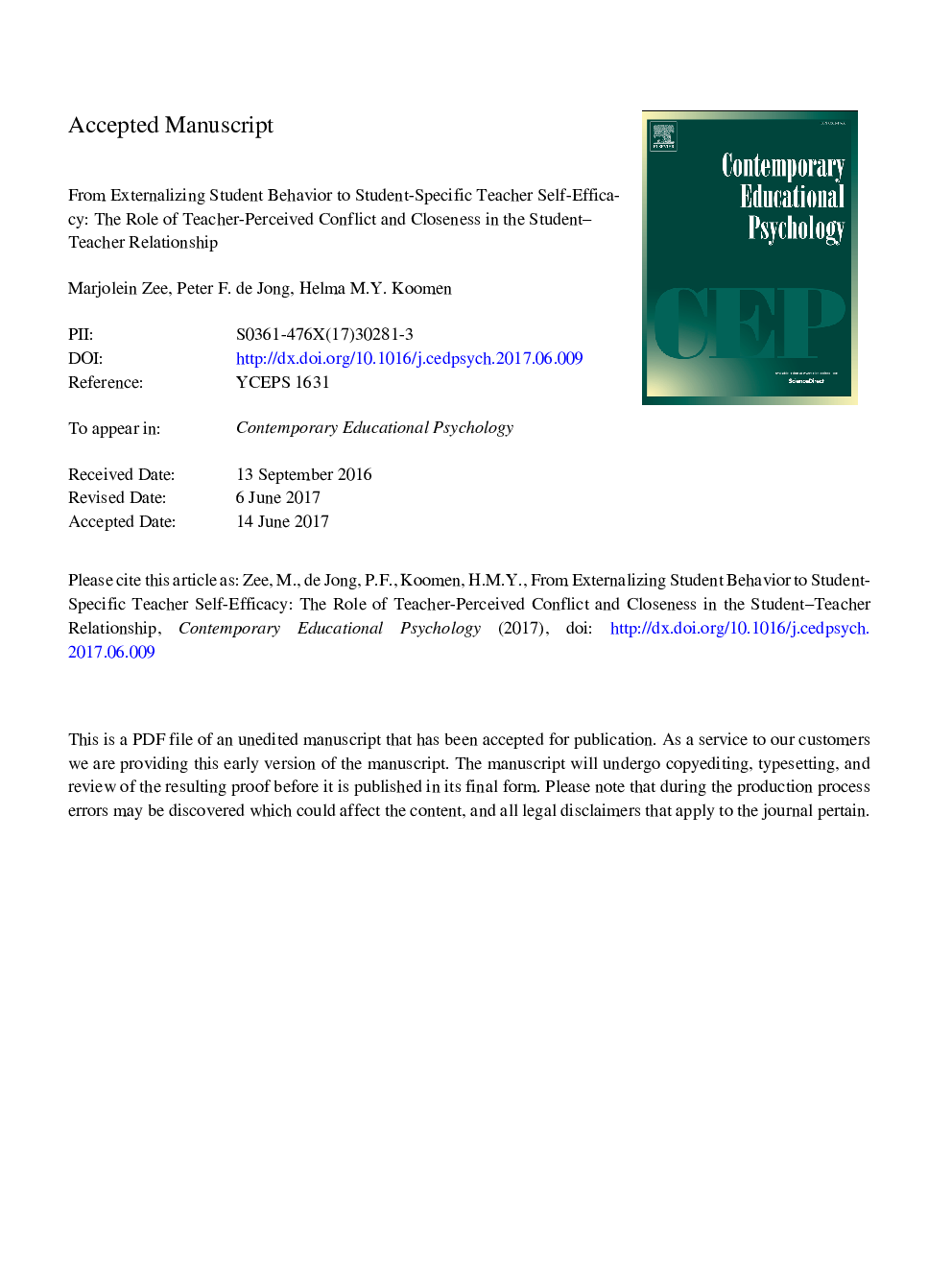| Article ID | Journal | Published Year | Pages | File Type |
|---|---|---|---|---|
| 4937843 | Contemporary Educational Psychology | 2017 | 51 Pages |
Abstract
Data gathered from a longitudinal study within regular upper elementary schools were used to evaluate a theoretical model within which teachers' perceptions of conflict and closeness in the student-teacher relationship were considered as the intermediary mechanisms by which individual students' externalizing behavior generates changes in teachers' student-specific self-efficacy beliefs (TSE) across teaching domains. Surveys were administered among a Dutch sample of 524 third-to-sixth graders and their 69 teachers. Longitudinal mediation models indicated that individual students' externalizing behavior generally predicted higher levels of teacher-perceived conflict, which, in turn, resulted in lower student-specific TSE across teaching domains (i.e., instructional strategies, behavior management, student engagement, and emotional support). Teacher-perceived closeness, however, was not found to mediate the link between externalizing student behavior and student-specific TSE. Instead, support was found for an alternative model representing the hypothesis that TSE, irrespective of teaching domain, mediated behavior-related changes in teachers' perceptions of closeness in the student-teacher relationship.
Keywords
Related Topics
Social Sciences and Humanities
Psychology
Applied Psychology
Authors
Marjolein Zee, Peter F. de Jong, Helma M.Y. Koomen,
